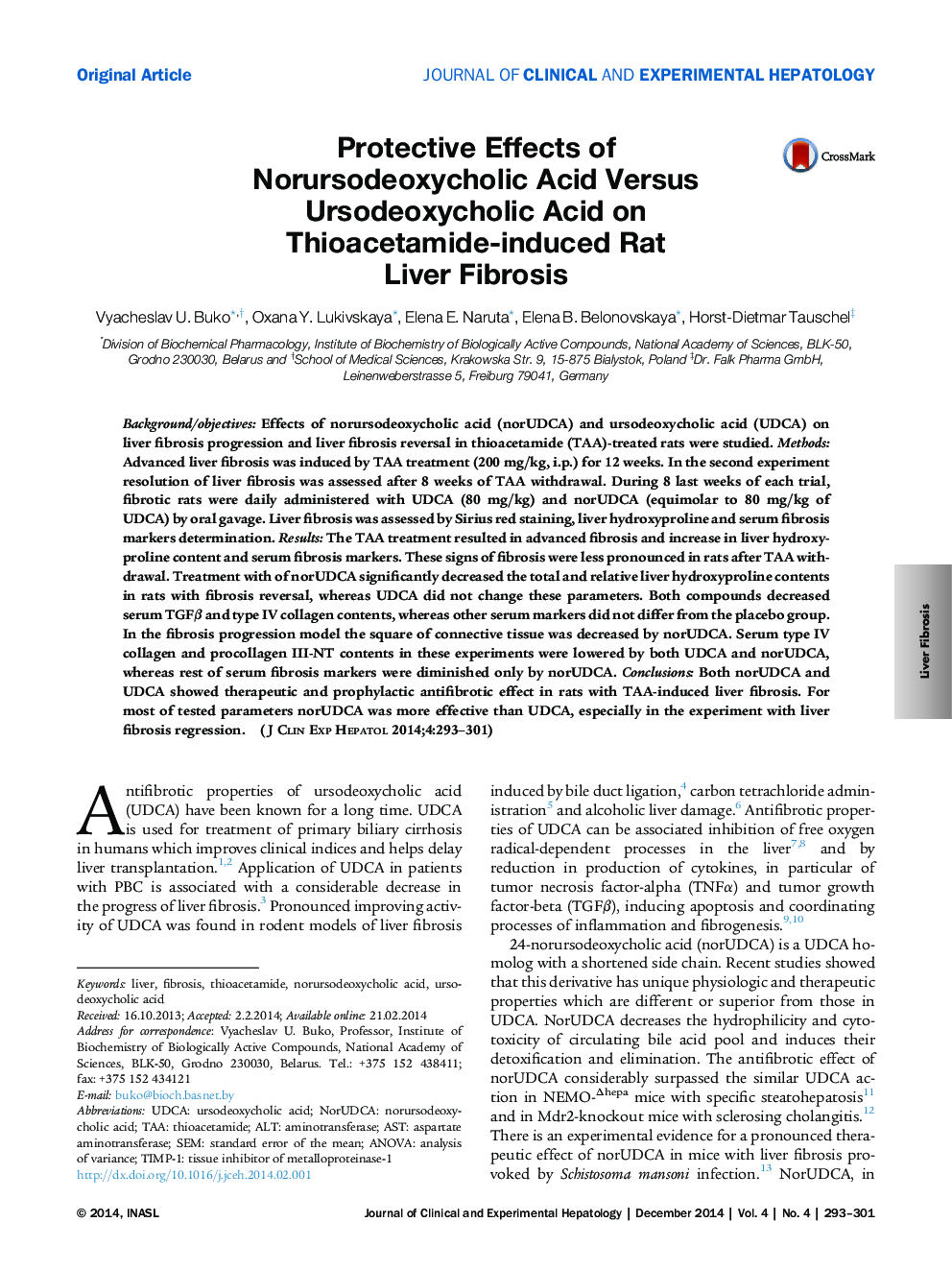| Article ID | Journal | Published Year | Pages | File Type |
|---|---|---|---|---|
| 3339246 | Journal of Clinical and Experimental Hepatology | 2014 | 9 Pages |
Background/objectivesEffects of norursodeoxycholic acid (norUDCA) and ursodeoxycholic acid (UDCA) on liver fibrosis progression and liver fibrosis reversal in thioacetamide (TAA)-treated rats were studied.MethodsAdvanced liver fibrosis was induced by TAA treatment (200 mg/kg, i.p.) for 12 weeks. In the second experiment resolution of liver fibrosis was assessed after 8 weeks of TAA withdrawal. During 8 last weeks of each trial, fibrotic rats were daily administered with UDCA (80 mg/kg) and norUDCA (equimolar to 80 mg/kg of UDCA) by oral gavage. Liver fibrosis was assessed by Sirius red staining, liver hydroxyproline and serum fibrosis markers determination.ResultsThe TAA treatment resulted in advanced fibrosis and increase in liver hydroxyproline content and serum fibrosis markers. These signs of fibrosis were less pronounced in rats after TAA withdrawal. Treatment with of norUDCA significantly decreased the total and relative liver hydroxyproline contents in rats with fibrosis reversal, whereas UDCA did not change these parameters. Both compounds decreased serum TGFβ and type IV collagen contents, whereas other serum markers did not differ from the placebo group. In the fibrosis progression model the square of connective tissue was decreased by norUDCA. Serum type IV collagen and procollagen III-NT contents in these experiments were lowered by both UDCA and norUDCA, whereas rest of serum fibrosis markers were diminished only by norUDCA.ConclusionsBoth norUDCA and UDCA showed therapeutic and prophylactic antifibrotic effect in rats with TAA-induced liver fibrosis. For most of tested parameters norUDCA was more effective than UDCA, especially in the experiment with liver fibrosis regression.
